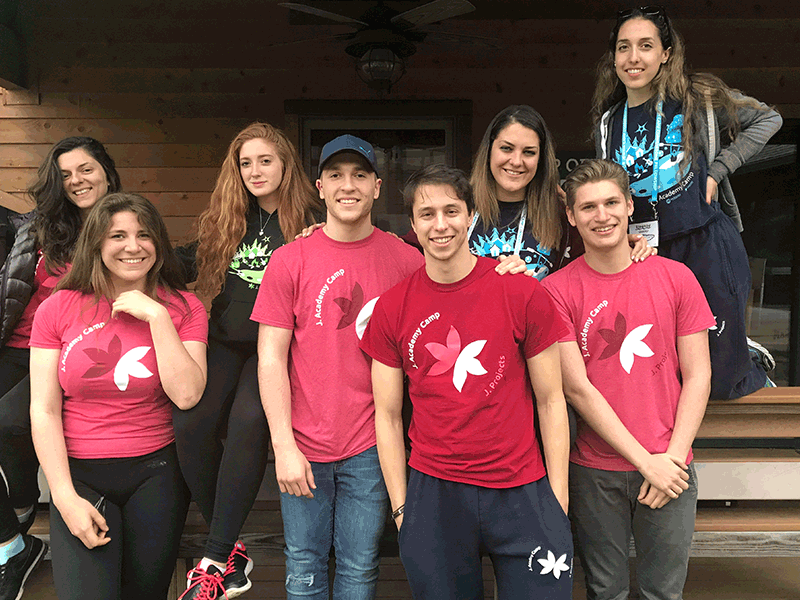Toronto’s J. Academy, a relatively new camp created for young Russian-speaking Jews, generously supported by UJA Federation of Greater Toronto and the Genesis Philanthropy Group, participated in the annual Cornerstone Fellowship Conference recently, joining a network of over 3,600 alumni from North America and Israel.
This is the third consecutive year that the camp has been selected to take part in the Cornerstone Fellowship. A delegation of eight camp staff members, headed by camp director Dina Dryden, was the only group representing a Russian-speaking Jewish camp. Starting out with just 70 campers in 2010 and rising to 250 this summer, it has become one of the fastest growing camps.
“I felt extremely proud of the work we have put in to our camp community in the past years. Despite being just an eight-year-old camp, J. Academy did not fall short compared to our 100-year-old counterparts,” explains Dryden.
“When J. Academy started, we were constantly told that we have a niche product, and the true testament of our success would be in five years’ time, if we still exist or not.”
READ ALSO: A TASTE OF RUSSIA INTRODUCES RUSSIAN CULTURE TO CANADIANS
In some areas, Russian-speaking camps stand out and are unlike any traditional Jewish camp.
“We approach Jewish studies at camp in a unique way. While other camps might focus on prayers and the teaching of Hebrew, we incorporate Jewish topics through the use of art, music and science,” said Dryden.
Another notable difference is the demographics of the campers attending Russian camps. Almost all the North American camps at the conference were based in long-standing Jewish communities and are from relatively homogeneous populations.
“Our campers come from a young emerging community,” said Dryden, referring to the Russian-speaking Jewish families in the North York region of the Greater Toronto Area.
“Some campers were born in Israel and are new to Canada, some were born here. Our campers speak English, Russian and Hebrew. Some of our campers are strongly affiliated with Judaism while some come from secular families.”
Ilana Golzman is someone who has spent a great deal of time at J. Academy, as she will be starting her eighth year at the camp, five of which she spent as a staff member.
“Every year I’ve been to camp, whether it was as camper or as staff, our community grew, whether it’s by numbers or the strong bonds that carry from year to year,” says Golzman.
Golzman also mentions the effect camp had on her family and closest friends: “My friendships at camp extend to my parents too. They now know other camper’s parents, my co-workers and camp executives.”
Kate Noam, director of the Russian-Jewish community outreach and engagement at the UJA Federation of Greater Toronto, has worked at J. Academy in the past and continues to supports it. She underlines the importance of identity-based Russian camps.
“The parents of our campers, whether they immigrated from Israel, Russia or other former Soviet countries, were never part of an organized Jewish life. We are a gateway for those families to be a part of something bigger,” says Noam.
Noam calls it a “household unit”- meaning that Russian camp transcends general camp culture and Jewish values not only directly to the campers, but to their parents and grandparents as well.
The Cornerstone conference, which was created by the Foundation for Jewish Camps, took place in Waynesboro, Pa., from May 21-25. Cornerstone is one of the largest gatherings of Jewish professionals, camp directors, alumni and counsellors from 67 camps in North America. It gives Jewish camp professionals a chance to learn new things and how to deepen the impact of Jewish camps on today’s youths.
The camps represented at Cornerstone come from a wide range of movements and political/religious affiliations. Cornerstone, a product of over six months of thorough planning, aims to pass on experience, knowledge and resources accumulated by the various camps and educators over the years.
